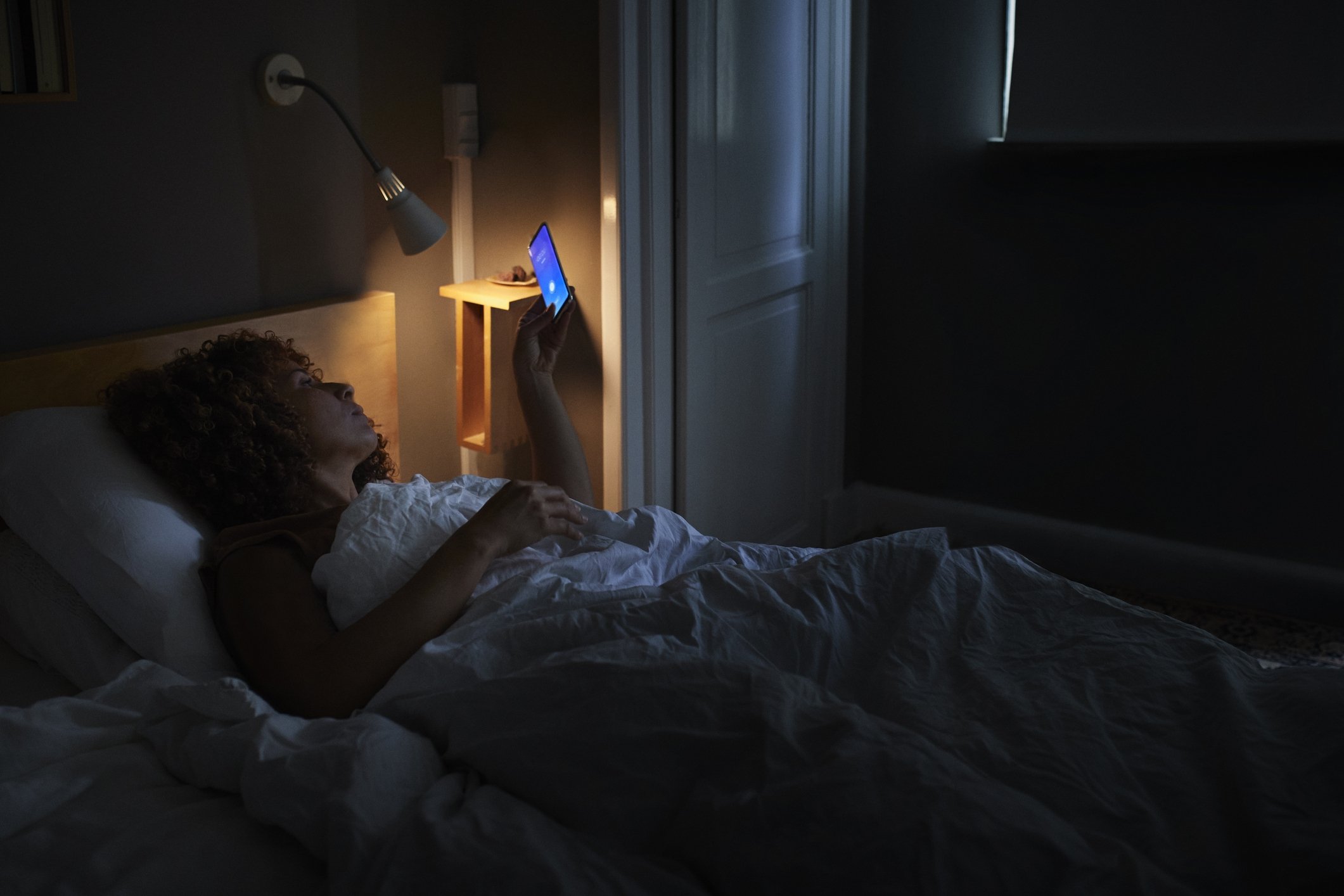© Turkuvaz Haberleşme ve Yayıncılık 2024
We hear so much about how important it is to have a healthy morning routine as a cornerstone of the ideal day, but if the foundations aren’t set up right the night before then some of those actions tend to fall by the wayside.
Establishing a consistent evening routine not only supports your goals but also lays the foundation for a productive morning, thereby facilitating the adoption of new habits. Here are 10 tips for crafting an effective nighttime routine:
The single most important thing we can do for our well-being is to get enough sleep, which for most people is approximately seven to nine hours. It’s also best to get sleep according to the circadian rhythm, which means waking with the sunrise and sleeping a few hours after it gets dark.
So, if you don’t want to be forced to wake up with an alarm, yet you do want to get enough sleep, then it’s pretty simple: just count back nine hours and set your alarm instead for the time you want to get into bed. Consistency is key to adapting to the circadian rhythm, thus it is important to go to sleep and wake up at the same hours each day, and this includes the weekends.
There are several tips the experts share on how to get the best quality sleep. From designating your bedroom as solely a place to slumber in and having it dark and cool, these are some basics that can set you up for sleep success.
Getting morning sunlight into your eyes is a hack for setting your circadian rhythm, as is looking at sunlight around the time of sunset. If you happen to wake up and are unable to sleep, it is advised to get out of bed and to do something relaxing like read a book, but to avoid looking at a backlit screen.

Most of us tend to wind down by watching television, immersed in our computers and tablets, or scrolling our phones. Not only are these activities not actually that relaxing, but the blue light from screens disrupts melatonin production, which makes us get sleepy at the appropriate time.
It is thus advised to reduce exposure to blue light for at least an hour before bedtime. Our physical bodies have simply not evolved to contend with the innovations of modern technology such as electronic devices.
Recall how our ancient ancestors must have lived, which was at most by candle and firelight, and mimic your surroundings accordingly. Create a relaxing environment with atmospheric lighting rather than being under bright lights in the evening.
Floor or table lamps are said to be more optimal than ceiling lights, and candle light is even better to help your body wind down and register that it is in the final hours before heading into a deep sleep.
Instead of plopping straight down on the couch, once your workday is over, consider instead putting on some grooving tunes and getting yourself prepped for the next day.
From tidying up to laying out the clothes you want to wear, making a to-do list and planning out the next day in advance, these are some simple strategies to give yourself peace of mind for the evening and to set yourself up for a jump-start the next morning.
It takes us approximately two to four hours to digest our meals and ideally, this process would be completed before we commit to a deep sleep. This is because our sleep cycles are reformative and geared toward healing our bodies if we can get into them at the right times and it is best done when we are no longer busy digesting.
Furthermore, the food we eat gives us energy, so if we eat late in the evening most of us are bound to experience a second wind, which makes getting to sleep at an appropriate hour much more difficult.
So, eat as early as possible and ideally at least two to three hours before sleeping and refrain from snacking in between. If you absolutely must have something then fruit is the best choice as it takes the least amount of time for our body to digest.
While the boost that caffeinated drinks such as coffee and tea give us in the morning, having it later than 10 hours before our bedtime can have detrimental effects on our sleep patterns. Caffeine not only inhibits falling asleep, but it also interferes with REM and thus the quality of sleep we get.
Limit the consumption of caffeine and nicotine in the evening, as they can interfere with your ability to fall asleep. In the evening hours, many people choose to consume caffeinated sodas, teas and even coffee, which has the highest amount of caffeine but may not be aware of the negative effects these beverages have on our sleep.
Instead, we can choose to drink water with meals followed by herbal teas such as chamomile, which is known for being calming.
Picture yourself as if you were the main character in a movie with calming music playing in the background as you sit down to read an enthralling book with a cup of hot tea or maybe bust out an old-fashioned puzzle or a board game to play with family and friends. Taking on a new hobby such as playing an instrument or painting can also be a great evening activity.
Step out of the box, literally, and conjure up ways to have some fun and relax that contribute to your rather than simply sitting and watching the lives of others unfold on your screens. Stop doomscrolling and place the phone far away to enjoy the moment doing an activity that relaxes you and enriches your life.

The solution to feeling better can most often be found in self-care. Engaging in self-care practices is really important but most of us just don’t place enough priority on it. But there are some activities we know will feel good and be good for us and the evening is an optimal time to start giving them a try.
Whether it’s a beauty routine, taking a warm and relaxing shower or incorporating relaxation techniques, such as meditation, yoga, deep breathing exercises, stretching or progressive muscle relaxation, these sorts of practices are enjoyable and help to calm the mind and body.
Finish off the night by taking a few moments to reflect on your day and focus on the positive aspects, whether it be in writing such as in a journal, or just through pensive thought. Be mindful of the highest and lowest points of the day and troubleshoot areas of improvement.
Consider writing down at least three things you are grateful for and if you are worried, write out your concerns on paper and come up with some action points to minimize the effects of repetitive negative thoughts roaming in your head.
The ideal night routine varies of course from person to person based on individual preferences and lifestyles. However, these suggestions can be applied by everyone seeking an effective and relaxing night routine that will give them a running start in the morning.
The key is to create a routine that promotes relaxation and signals to your body that it's time to wind down for the night.
